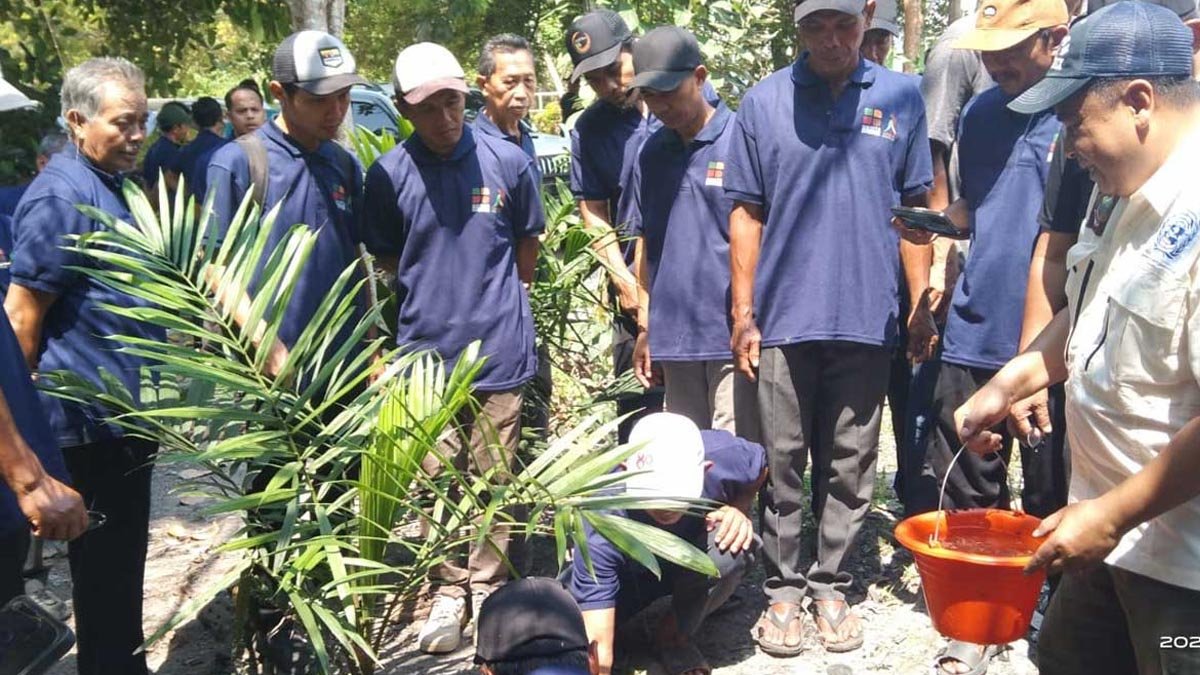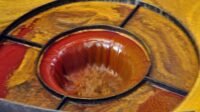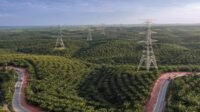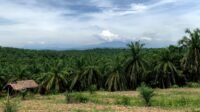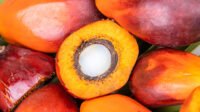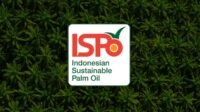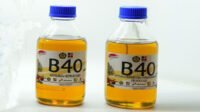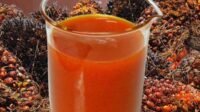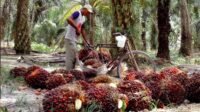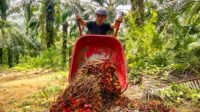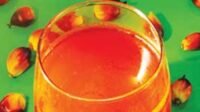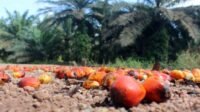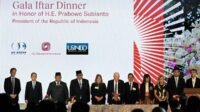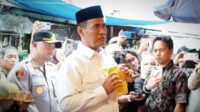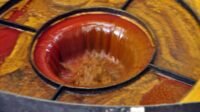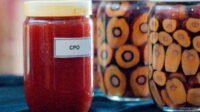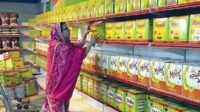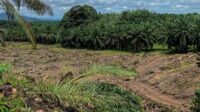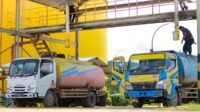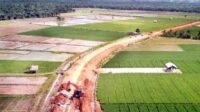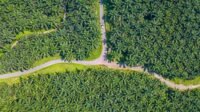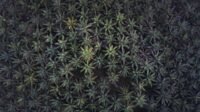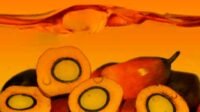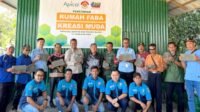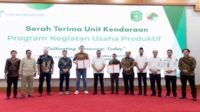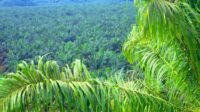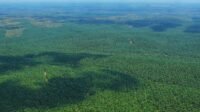PALMOILMAGAZINE, PALEMBANG – Palm oil farmers under the Asosiasi Petani Kelapa Sawit Perusahaan Inti Rakyat (Aspekpir) in Musi Banyuasin, South Sumatra, are now putting sustainability into practice by producing biochar from empty fruit bunches (EFB). The training took place in Bumi Kencana Village, Sungai Lilin District, on Thursday (Sept 25, 2025), with full support from the Plantation Fund Management Agency (BPDP).
Aspekpir invited experts Mirza Arif Zainal from the Agathis Dammara Carbon Foundation and biochar practitioner Arif Firmansyah to lead the workshop. Similar initiatives had previously been conducted in Riau, specifically in Kampar, Rokan Hulu, and Pelalawan districts.
Aspekpir Chairman Setiyono said that 110 member farmers in Musi Banyuasin participated in the training. “Our hope is that farmers can independently produce biochar. The raw materials are abundant, since EFB is readily available around plantations,” he stated in an official release received by Palmoilmagazine.com on Friday (Sept 26, 2025).
According to Setiyono, biochar is essential to restore soil fertility that declines after a planting cycle. “Its application can help replenish soil nutrients while reducing dependency on chemical fertilizers,” he added.
Anwar Sadat, Senior Analyst of the BPDP’s MSME Division, attended the event on behalf of the agency’s President Director and praised Aspekpir’s initiative. He emphasized that the program aligns with BPDP’s mission to improve farmer welfare. “Biochar helps retain nutrients and water, which means farmers can cut back on chemical fertilizers. That translates into lower production costs,” he explained.
Anwar also highlighted the vast potential of utilizing palm oil waste. Each ton of fresh fruit bunches (FFB) produces about 22% empty fruit bunches. “This creates opportunities for Aspekpir to partner with palm oil mills to secure raw materials,” he noted.
Beyond its agricultural benefits, biochar is also seen as a response to sustainability concerns raised by the European Union. “Biochar is made from organic material and stores carbon, making it environmentally friendly,” Anwar stressed.
Acting Sungai Lilin Subdistrict Head, Irfan Apriadi, also welcomed the move. “We hope farmers will apply the knowledge gained here in their own plantations,” he said.
Trainer Mirza Arif Zainal explained that biochar is produced through incomplete combustion with limited oxygen at temperatures above 250°C for at least two hours, depending on the biomass type.
Meanwhile, biochar practitioner Arif Firmansyah underlined its economic potential. Demand for biochar, both domestically and internationally, continues to grow alongside the global shift toward sustainable farming. “This is a golden opportunity for palm farmers. Biochar can be marketed from household and community levels up to plantation companies,” he said.
Arif added that Indonesia’s biochar industry already ranges from small-scale producers to large factories. “Palm farmers can use biochar not only for their own crops but also as a marketable product,” he emphasized. (P2)

